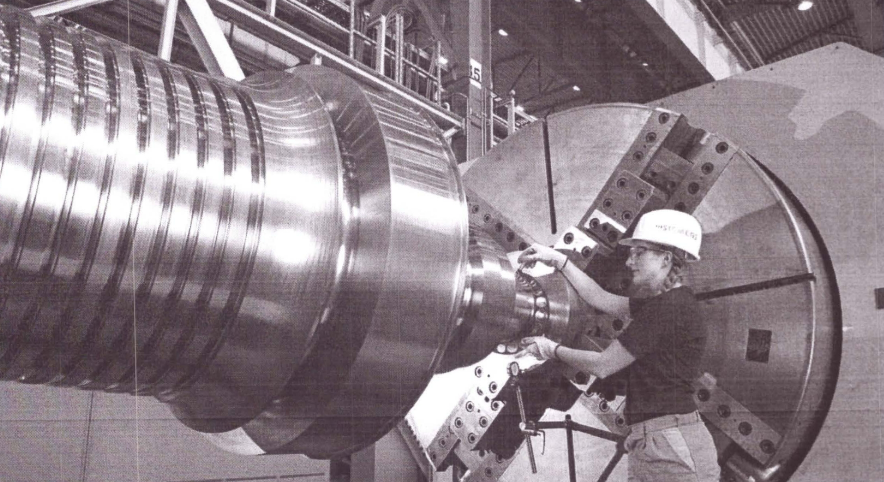Frankfurter Rundschau on the European Patent Office (EPO)
THE German publication Frankfurter Rundschau has released this article by Thomas Magenheim-Hormann, who has a long history writing about EPO issues. The EPO's staff union saw the article and shared translations of it with staff (in English, French, and Dutch), even if automated and thus imprecise.
In order to make the publication more accessible today we're reproducing the English version as HTML, plain text, and GemText:
Frankfurter RundschauEuropean Patent Office refuses
12.02.2024, 15:46
From: Thomas Magenheim-Hormann
An engineer at Siemens Energy: "Large industrial groups thrive on innovation. But research is only worthwhile if the results can also be protected under patent law. © picture alliance / Rupert Oberh
The industry and its own works council criticise the EPO's auditing practices. However, the authority has so far refused to engage in dialogue.
You can call the letter from the staff representatives at the European Patent Office (EPO) a resolution or a fire letter. What it lists sounds like years of ignorance on the part of management, which does not exempt the head of the Patent Office, Antonio Campinos. "Quality is the appreciation of many and not the dissatisfaction of a few," the works council quotes him as saying about strongly articulated quality problems. As Campinos suggests, it is not the few who are criticising. For a good year now, an industry initiative called IPQC has been denouncing poor patent quality. Patent attorneys have been doing this for a long time. Patent professionals have also voiced their criticism. Now the internal works council has also joined in.
The EPO trade union Suepo criticises the demand to process more and more patent applications in less and less time, which is at the expense of quality. At the same time, the union writes, the number of patent staff is being thinned out, resulting in "increased pressure on remaining patent applicants and less available patenting time per application".
According to the letter, the office is increasingly acting like a profit-orientated corporation. Applications that were never recognised in the past are now being given positive stamps of approval. Promises to pay attention to quality remained empty words. "Despite publicly voiced concerns about patent quality, the pressure to produce priifers remains undiminished," criticises the staff. In some cases, it is even being exacerbated. Meanwhile, the office management remains silent. They do not comment on internal documents such as that of the works council.
A former top manager at the office also criticises current patent practice. "Today, quality is falling by the wayside, a lax approach is everywhere," writes Jacques Michel, current head of the patent consultancy Europatis, in a blog. "Quality is falling by the wayside," blogs renowned patent attorney Martin Wilming, speaking of a fatal undesirable development.
Beat Weibel feels vindicated. "We are open to constructive dialogue," says the head of patents at Siemens. He and his company have joined IPQC together with other well-known companies from Europe and the USA to work with the patent office to discuss quality improvements. This was last the case last November, when IPQC brought together representatives from national patent offices for talks. "The European Patent Office was also invited, but stayed away," regrets Weibel. It had announced that it no longer wished to make direct contact with the IPQC, but only to discuss content via organisations such as the Federation of German Industries (BDI). Weibel believes that this is no longer constructively possible in such a forum. "IPQC members are directly affected, so they speak plainly and don't have to take a political view like an association," he says.
In contrast, IPQC's concerns have met with an open ear at the national patent offices. "The German Patent Office shows great willingness to engage in dialogue," praises the Siemens patent chief. Like the EPO, it is based in Munich. The Siemens man is also annoyed by the EPO's refusal to engage in dialogue because the criticism is well documented, as a study by the analysis company ipQuants shows. According to the study, the number of patent applications at the EPO rose by a good 7.5 per cent between 2018 and 2022, while the number of patents fell by seven per cent. The time available to file an application has shrunk by around a tenth. Important priiping steps were being omitted more and more often. "The depth of validation has decreased, more and more applications are being waved through," says Weibel, summarising the results of the study. This has consequences when patents are contested. According to ipQuants, this is now successful in almost three quarters of such cases. "That is a very high figure," emphasises Weibel. The office replies that the study is not based on correct data, but does not mention this and does not answer any questions.
The IPQC criticises that it is becoming increasingly difficult to be certain of a patent and to build investments on it. Inflationary patent authorisations also have other consequences. "Badly priced patents can block innovation," warns Weibel. Even a start-up could be rejected as a result.
In June, the IPQC will again attempt to enter into dialogue with the EPO. A congress is planned. The question of whether the EPO will come this time, however, remains unanswered.
From Thomas Magenheim
We may never see Benoît Battistelli behind bars (he's too old), but there's still some prospect of justice for António Campinos and his corrupt friends in the EU. The damage they've done is truly enormous. █


